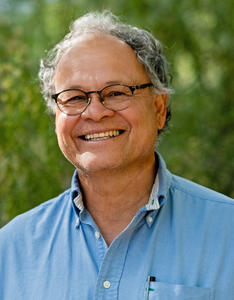 Joaquín Murrieta-Saldívar, heading from Mexico to California in the early ’90s, handed his passport to the Border Patrol agent at the crossing station in Tijuana.
Joaquín Murrieta-Saldívar, heading from Mexico to California in the early ’90s, handed his passport to the Border Patrol agent at the crossing station in Tijuana.
“You are not allowed to cross the border,” the agent said. “With that name, you will want to fight to get California back. I know your story.”
Murrieta-Saldívar knew the story of Joaquin Murrieta Carrillo, a mining worker in California during the Gold Rush known as the Robin Hood of the West.
For many Mexican-Americans and Mexicans, Murrieta Carrillo was a fighter trying to recover the land that had been stolen by the United States. For Americans, he was a bandit that stole gold and horses. For Tucsonans, Joaquín Murrieta is the name of a park on the west side along North Silverbell Road.
In the 1800s, Murrieta Carrillo emigrated to California, seeking fortune and gold. Two centuries later, one of his descendants, Murrieta-Saldívar, would migrate to Arizona, looking for a natural resource as valuable as gold: water.
“My mom said to me that when I was born, my grandmother told her: ‘he is your last child, you already have the last name, Murrieta. So, he must be named Joaquín,’” Murrieta-Saldívar said.
